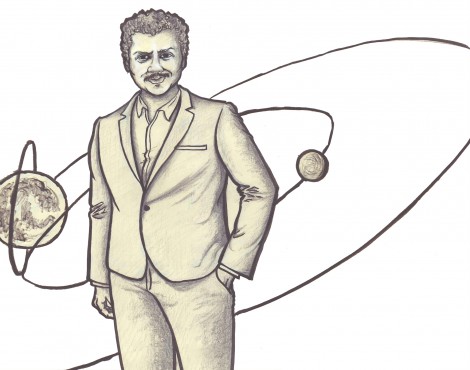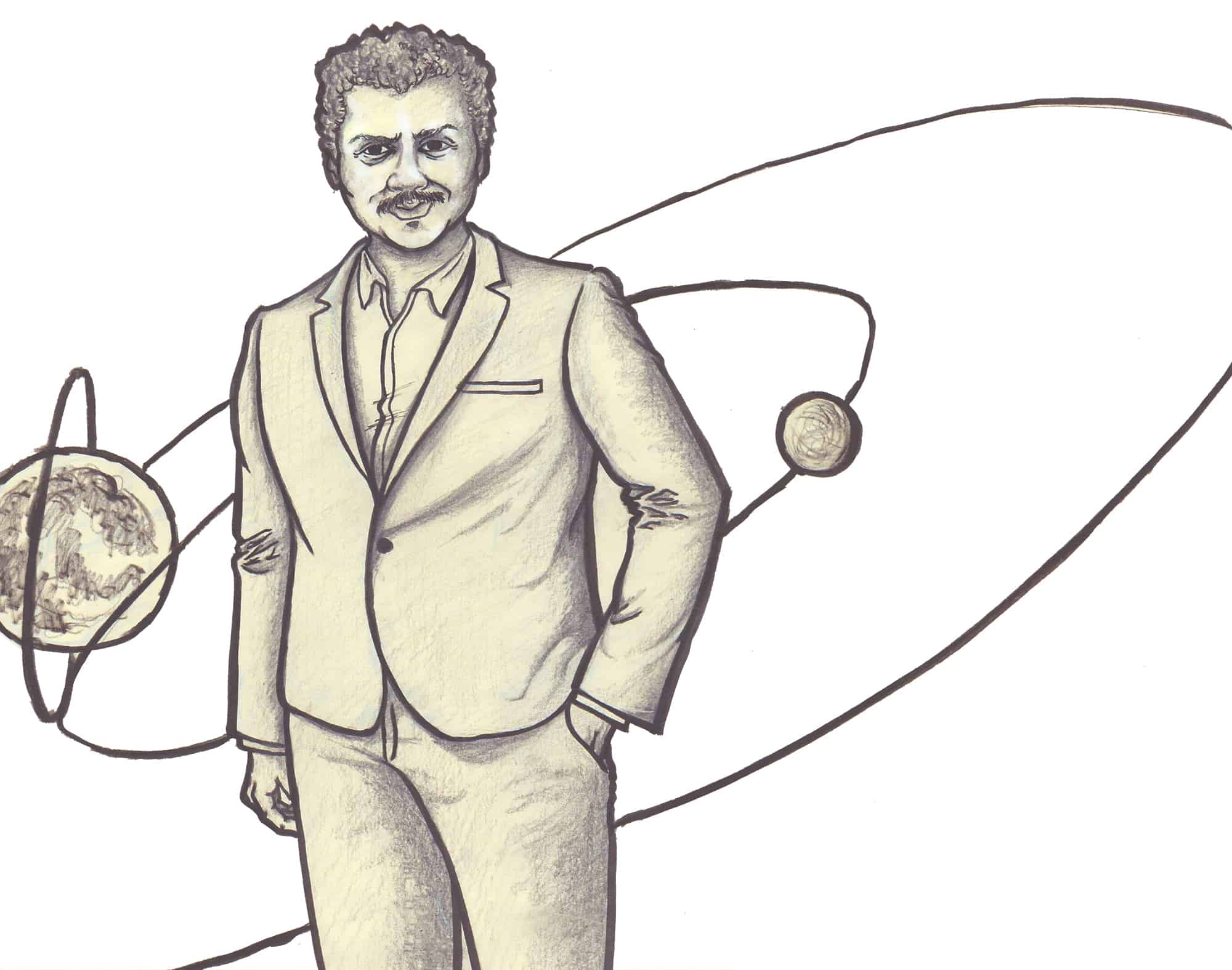Dr. Neil deGrasse Tyson has won the first Dunlap Prize from the University of Toronto’s Dunlap Institute for Astronomy and Astrophysics. According to the institute, the prize recognizes those who embody “the institute’s vision for sharing scientific discovery with the public, training the next generation of astronomers, and developing innovative astronomical instrumentation to enable breakthroughs in observational research.” Tyson’s impressive career and academic achievements easily distinguish him as a renowned astrophysicist, but these factors alone did not earn him the Dunlap prize, nor did his reputation as the “Sexiest Astrophysicist Alive.” The award also recognizes his role in scientific outreach and education.

WILLIAM AHN/THE VARSITY
Tyson is the current director of the Hayden Planetarium in the America Museum of Natural History, located in New York. As an astrophysicist, Tyson has followed an exceptional academic path: he earned his BA in physics at Harvard and a PhD in astrophysics at Columbia. He also completed his post-doctoral research at Princeton. He was twice recruited by former President George W. Bush to serve on White House commissions, and was part of the NASA advisory council from 2005 – 2008.
Born in the same week that NASA became operational, Tyson became fascinated with astrophysics on his very first visit to the Hayden Planetarium at the age of nine. “The universe called me,” he said during a conversation with Stephen Colbert. Now, as director, he has been tirelessly pushing public education of science and inspiring the young generation to explore space.
Dr. Tyson has authored multiple books, including Death By Black Hole: And Other Cosmic Quandaries, an anthology of his most popular essays in Natural History magazine, and The Pluto Files: The Rise And Fall of America’s Favourite Planet — an analysis of Pluto’s cultural impact as well as a collection of public responses to Pluto’s demotion. The latter is especially fitting, as Tyson took part in the decision to “downgrade” Pluto. In his most recent book, Space Chronicles: Facing the Ultimate Frontier, Tyson not only provides a well-documented list of NASA’s contributions to our society and daily life, but also calls for greater recognition and expansion of the space program.
Tyson’s efforts in educating and inspiring the public can also be reflected in his radio show, StarTalk. The weekly show explores a wide variety of topics, scientific and non-scientific alike, and analyzes them from a scientific perspective. Past topics include dark matter, time travel, zombie apocalypses and hip-hop. Tyson’s humour, together with the expertise of guest co-hosts, keeps the show entertaining and lighthearted, yet informative and scientifically accurate. He has also collaborated with many well-known names — like Richard Dawkins, Stephen Colbert, and Bill Nye — to discuss science topics and encourage students to keep pursuing their dreams in science.
His witty and sometimes sarcastic style has gathered him a dedicated audience not only in universities but also online; his twitter account, followed by nearly 1.5 million people, is composed of fun facts, interesting thought experiments, scientific reviews of sci-fi movies, and other humorous quirky comments. In 2014, he will also be the host of Cosmos, a continuation of the legendary science show first popularized by Carl Sagan.
Tyson’s immense popularity has earned him 18 honorary doctorates, a NASA Distinguished Public Service Medal and an asteroid named in his honour (Asteroid “13123 Tyson”). On March 21, 2014, Tyson will visit at U of T for the Dunlap Prize ceremony and give a free public lecture in Convocation Hall. Registration for this event will be available later this winter.
With Files from the Dunlap Institute, Hayden Planetarium, and Colbert interview with Neil DeGrasse Tyson at Montclair Kimberley Academy.


